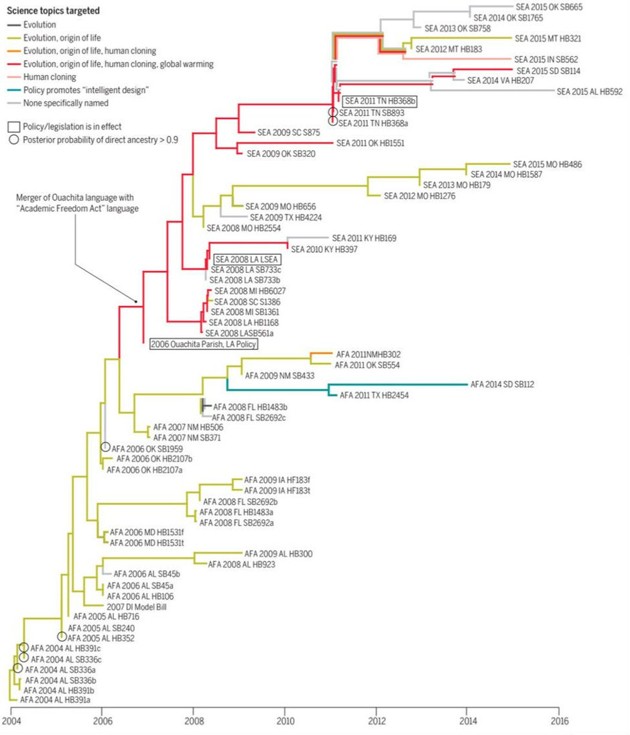The Evolution of Teaching Creationism in Public Schools
A new study shows that anti-evolution lessons have become more stealthily integrated into curricula.

Some 90 years out from the Scopes Monkey Trial, and a full decade after the legal defeat of “intelligent design” in Kitzmiller v. Dover, the fight to teach creationism alongside evolution in American public schools has yet to go extinct. On the contrary, a new analysis in the journal Science suggests that such efforts have themselves evolved over time—adapting into a complex form of “stealth creationism” that’s steadily tougher to detect.
Call it survival of the fittest policy.
“It is one thing to say that two bills have some resemblances, and another thing to say that bill X was copied from bill Y with greater than 90 percent probability,” Nick Matzke, a researcher at the Australian National University and author of the new paper, tells CityLab via email. “I do think this research strengthens the case that all of these bills are of a piece—they are all ‘stealth creationism,’ and they all have either clear fundamentalist motivations, or are close copies of bills with such motivations.”
* * *
Matzke performed a close textual analysis of 67 anti-evolution education bills proposed by local government since 2004. (Three U.S. states have signed them into law during this time: Mississippi, Louisiana, and Tennessee.) The result was a phylogenic tree—in effect a developmental history—tracing these policies to two main legislative roots: so-called “academic freedom acts,” and “science education acts.”
Matzke's analysis shows that academic-freedom acts were popular in 2004 and 2005 but have since been “almost completely replaced” with science-education acts, which emerged as the strategy of choice after the adoption of a 2006 anti-evolution policy in Ouachita Parish, Louisiana. (That policy’s lingering impact on creationist teaching was thoroughly exposed by Zack Kopplin in Slate earlier this year.) These acts tend to call for “critical analysis” of scientific topics that are supposedly controversial among experts. They often lump evolution alongside How the Movement to Teach Creationism in Public Schools Has Lived On and Evolved - The Atlantic:

